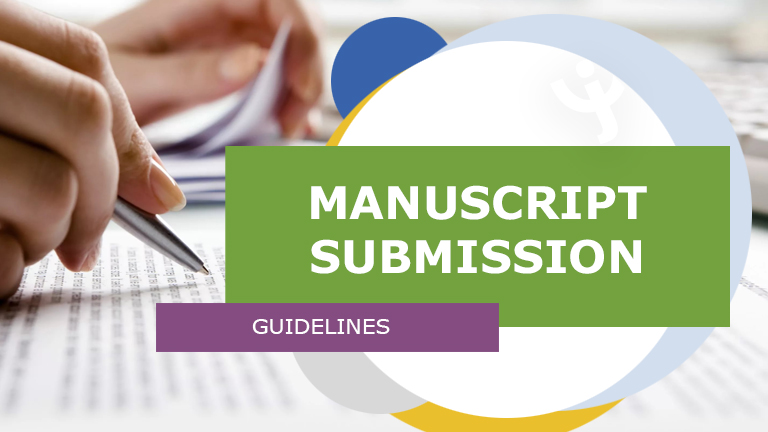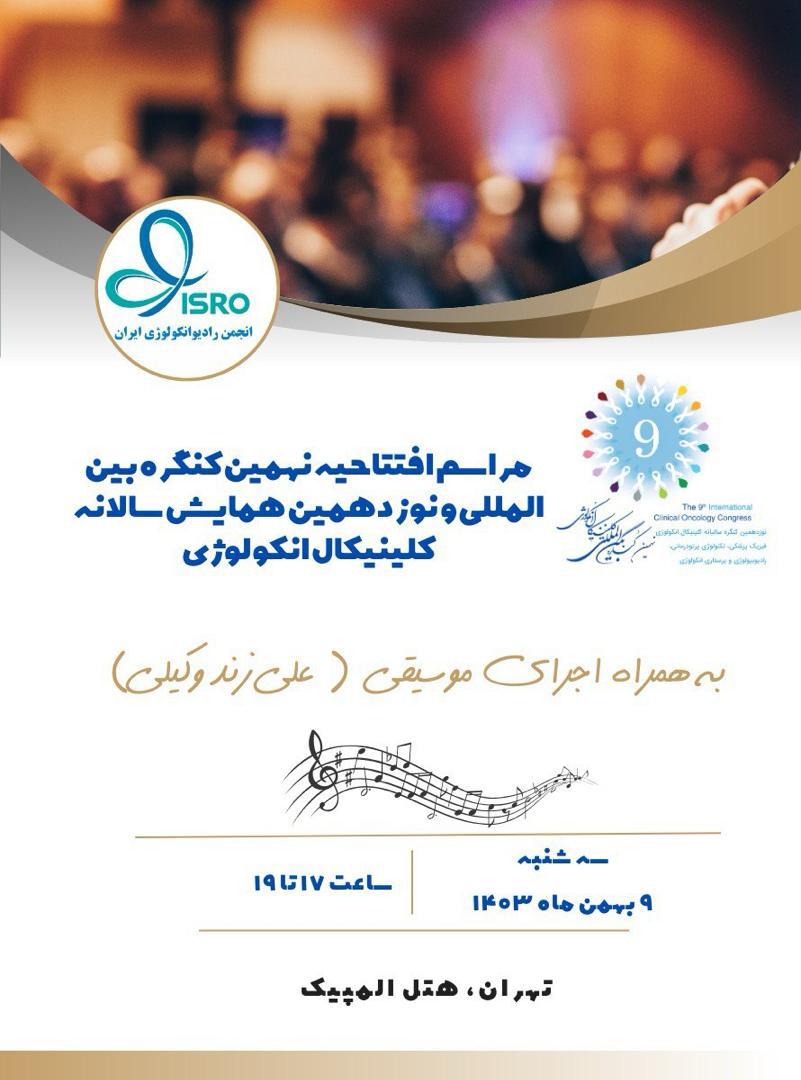Abstract Submission Guidelines

1. Overview
Submission Regulations
- Abstract submission deadline for ISCO 2025 is on December 25, 2024.
- Abstracts must be submitted online via the http://submit.iscocongress.com.
- In case of abstract withdrawal, please submit your requests in writing via email to publish@iscocongress.com or iscocongress2025@gmail.com, with your submission ID number(s).
- For any questions regarding the online submission process, please email publish@iscocongress.com or iscocongress2025@gmail.com.
- When submitting your manuscript, please ensure that you select the appropriate category for review by the designated reviewers.
- Clinical trials conducted in Iran and published in 2020 and beyond will be evaluated on a case-by-case basis. The goal is to introduce researchers to the medical research being carried out in the country.
- The submitted article must be in its final format. Any changes to the abstract or author names will require the abstract to be withdrawn and resubmitted with the intended revisions. The submission will then undergo the review process once again. It is important to note that the responsibility for any decline in the new submission lies with the authors.
- Upon final confirmation of your submission, you should receive an email acknowledging the receipt of your abstract. If you do not receive this confirmation within an hour after submission, please reach out to us at iscocongress2025@gmail.com with your submission ID.
- We recommend checking your spam folder first to ensure the email has not been misdirected.
- Top three articles in the field of clinical oncology will be selected for presentation in the ISCO Young session.
- With respect to acceptable formats of abstracts, as per the radiobiology workgroup’s request, in the field of radiobiology review article abstracts may now be considered following completion of the review process.
Aim and Scope
3.1. Clinical abstracts:
- Breast cancer
- CNS tumors
- Cancer management in COVID-19 era
- Cancer screening
- Endocrine and neuroendocrine tumors
- Gastrointestinal cancers
- Genitourinary cancers
- Gynecology cancers
- Head and neck cancers
- Hematological malignancies
- Lung cancers
- Palliative care
- Psyco-oncology
- Pediatric tumors
- Sarcoma
- Skin cancers
3.2. Physics abstracts:
- Streotactic radiosurgery (SRS) and streotactic body radiotherapy (SBRT)
Adaptive radiotherapy - Image guided radiotherapy ( IGRT) and surface guided radiotherapy ( SGRT)
- Artificial intelligence in diagnosis and treatment of cancer
- Treatment planning and novel radiotherapy techniques
- Dosimetry and quality control
- Brachytherapy
- Imaging in diagnosis and treatment of cancer
- Streotactic radiosurgery (SRS) and streotactic body radiotherapy (SBRT)
3.3. Radiobiology abstracts:
- Normal tissue radiobiology
- Tumor radiobiology
- Immuno-radiobiology
- Microenvironment
3.4. RTT abstracts:
- Artificial intelligence in radiotherapy
- Imaging in IGRT
- Novel techniques in radiotherapy
- Professional ethics and the necessity to transition from expertise based on experience to one based on knowledge and passion
- Role of expert radiotherapy expert in novel treatment techniques
3.5. Nursing abstracts:
- Recent innovations in chemotherapy related care
- Oncology nursing clinical guidelines
- Palliative care
- Artificial intelligence in oncology nursing
- Patient and family empowerment models
- Ethical challenges in cancer care
Criteria for acceptance
4.1. Originality:
By submitting an abstract intended for presentation at ISRO 2025, the first author (= presenter) warrants that the materials have not been previously published in any publication (in peer review setting) before February 15, 2025.
4.2. Accepted manuscript formats
- Original research
- Systematic review
- Meta-analysis
- We will not consider:
- Reviews
- Case reports/case series
- Hypothesis or proposal papers
- Letters, commentaries, or essays
- Opinion pieces
- Policy papers
- Clinical practice guidelines
- Any other type of secondary literature
- Monographs
4.3. Abstract structure
- Author names and affiliations should not be present in the abstract title and abstract content as the abstract must be blinded for review.
- The title of the abstract should include significant keywords that reflect the content of the abstract
- Abstracts must not exceed 350 words. Deduct 50 words for each table, graphs or figures included. For example, with two figures, the maximum word count is 250.
- Images are not permitted as they do not reproduce well. Brief and clear tables, graphs, and figures are accepted (maximum of 1 page on US Letter, 8.5 x 11-inch paper).
- The abstract is presented in an intelligible fashion and is written in standard English
- The abstract must include the main headings of Background and Objectives, Methods, Results, and Conclusions
- Methods cover the main experiments and analysis (if any)
- Results cover the findings on primary (and secondary, if any) objective
- Conclusions are presented in an appropriate fashion and are supported by the data
- Use generic terms for drug names
- Standard abbreviations may be used without definition. Nonstandard abbreviations should be kept to a minimum and placed in parentheses after the first use of the word or phrase
- Use International System (SI) for units
Review Process
- Each abstract will be blinded and scored by up to two reviewers.
- The reviewers are selected based on the abstract category (clinical, physics, radiobiology, RTT)
- Abstracts will be accepted on the basis of scientific merit and originality.
- Overall, bear in mind that your abstract will be rated according to the following criteria:
- is the design of the study valid?
- are the methods appropriate?
- what is the significance of the results?




